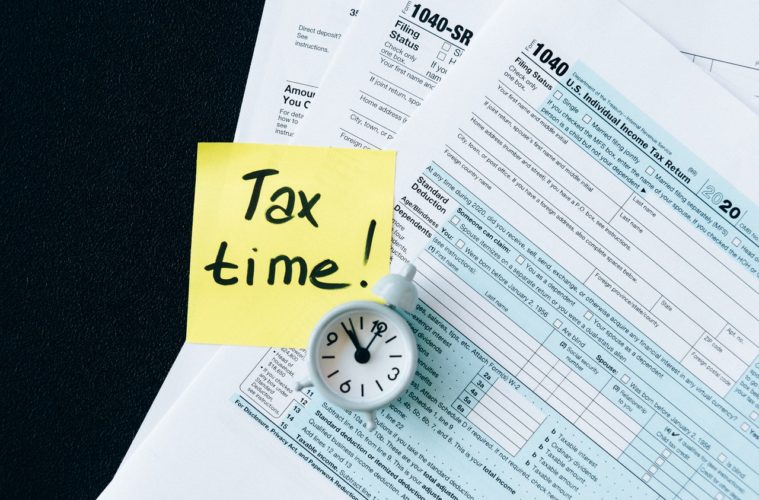College students are busy juggling homework, social time, and self-care. You don’t want to add more to your plate, but tax season has begun. It’s time to learn how to file taxes as an American international student, so you don’t have even bigger headaches waiting for you down the road.
Every American has to file annual taxes in the spring. It doesn’t matter if you live abroad for school or never held an American job. Use these tips to make your taxes easier to navigate before submitting everything by the April 15 deadline.
1. Add Up Your Income
Why do Americans abroad need to file taxes? Taxes are how the federal and state governments get funding for social programs, environmental projects, and general economic development. Reporting your taxes shows the government whether you paid your fair share, are due a refund, or your contributions are overdue.
American students in the U.K. should add up any income they made overseas or in America during the previous year. The process can be simplified further by employing the use of online tax calculators. Contractors and freelancers may get 1099 forms from their employers or may need to print out an income statement from however they receive paychecks.
If you have a job with a U.K.-based employer, you’ll receive a P60 form that’s the equivalent of a U.S. W2. They both show your total income and how much you’ve paid in taxes already, which an accountant will need to file your return.
What if you haven’t lived in the U.S. in the past year? You still need to file a tax return because the U.S. has a citizenship-based taxation system, not a residential-based program. When people go years without paying taxes, they risk being charged with a crime and paying up to 10 years of back taxes.
2. Remember Your Foreign Accounts
While you learn how to file taxes as an American abroad, make a list of every foreign account with your name on it. The Internal Revenue Service (IRS) requires that every U.S. citizen disclose all foreign accounts and assets above a certain threshold, including retirement accounts. This list is due with your tax return on April 15.
3. Check Your Tax Credits
See if your university participates in the U.S. Department of Education’s Federal Student Aid (FSA) program. If so, you could get a tax credit for your tuition. Speak with a university representative and fill out a 1098-E form to get this credit and reduce your annual taxes.
Some states still have “individual mandate” penalties for not buying health insurance, even when you live overseas. You’ll have to prove that you benefited from a foreign health plan to avoid this penalty if you didn’t have private insurance or coverage through the Affordable Care Act (ACA). Remember to declare yourself not subject to this provision by writing that you had covered status due to a foreign health plan.
4. Note Your Deadlines
Remembering deadlines is a critical part of learning how to file taxes as an American international student. Federal and state taxes are due by or on April 15 every year, but there are a few ways to push the date if necessary.
Anyone who still lives abroad by April 15 can get an automatic extension for June 15. It gives you more time to gather your paperwork and submit everything, but you’ll still have to pay interest on any unpaid taxes through those two months.
5. Review the Federal Credit Standards
No one wants to pay taxes twice on the same income. The Foreign Earned Income Exclusion (FEIE) and the Foreign Tax Credit help with that. They both exclude specific amounts of income from U.S. federal tax purposes.
The FEIE is best for students living in a country with a higher tax limit than America. Take France, for example, which has a 45% maximum tax rate while the U.S. has 37%. The U.S. government will assume you already paid a higher rate on your French taxes and reduce your U.S. liability.
However, the Foreign Tax Credit is best when you’ve paid qualifying overseas income taxes. If you don’t pay foreign Social Security, property, or real estate taxes where you go to school, this is likely the credit that’s in your best interests.
6. Learn About Potential Consequences
Not filing your taxes on time means the IRS has to let the State Department know, and they could keep you from renewing your passport because of tax debt. You might not be able to get home or get back to school.
Anyone who can’t pay owed taxes because they don’t have the money can figure out a payment plan, although they’ll still accrue interest. People who can pay their taxes and don’t may go to jail for tax evasion if their taxes add up to a significant amount spanning many years.
Do Americans Abroad Need to File Taxes?
Now that you know how to file taxes as an American abroad, start planning your tax return. Use these tips to gather all the information you need and speak with an international tax adviser if you’re still confused. It’s better to ask questions and get answers than end up paying more for late penalty fees.




